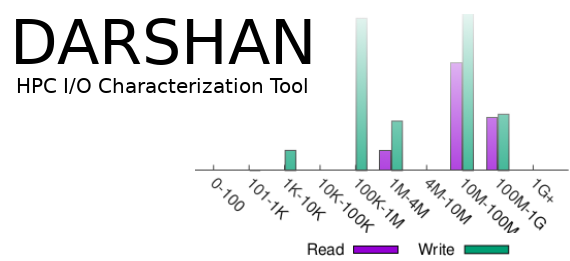This is the home page for Darshan, a scalable HPC I/O characterization tool. Darshan is designed to capture an accurate picture of application I/O behavior, including properties such as patterns of access within files, with minimum overhead. The name is taken from a Sanskrit word for “sight” or “vision”.
Darshan can be used to investigate and tune the I/O behavior of complex HPC applications. In addition, Darshan’s lightweight design makes it suitable for full time deployment for workload characterization of large systems. We hope that such studies will help the storage research community to better serve the needs of scientific computing.
Darshan was originally developed on IBM Blue Gene series computers at the Argonne Leadership Computing Facility, but today it is portable across a wide variety of platforms and is deployed in production at computing facilities around the world.
You will find current news about the Darshan project posted below. Additional documentation and details about the Darshan are available from the links at the top of this page.
